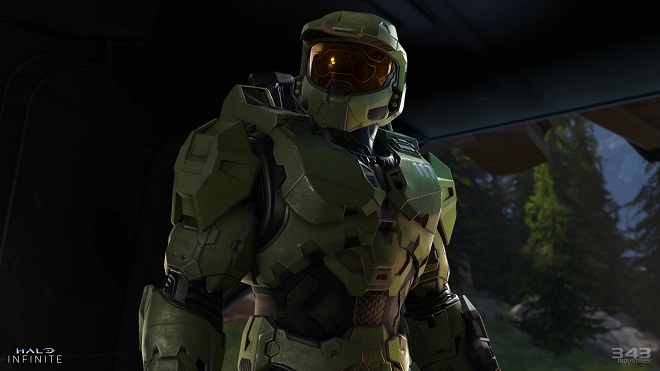Cognition Dissemination: Our Future of Infinite Games

The concept of seemingly infinite experiences isn’t new for the video gaming world, but it’s been discussed heavily in recent years for good reason. This was the inevitable next step for games following the live service format, titles that launched with enough content to keep players who brought them (or, more precisely, into them) occupied early on, while developers prepared and released more content to keep players returning. Bungie’s Destiny series is the most popular example, where both games were released and updated with new content for years. Destiny 2 is still getting expansions after releasing nearly four years ago, and it doesn’t appear the third game in the series is coming anytime soon.
The live service format has run into notable setbacks, the biggest being Bungie and EA’s Anthem, a failure so high profile that it might have stopped EA from green lighting any further such titles for the time being. The combination of this and the success of Star Wars Jedi: Fallen Order showed the publisher that single-player games are still viable in the gaming market despite their attempts to convince themselves otherwise years ago. (Whether they should have needed convincing in the first place is an argument for another post.) But this doesn’t mean publishers are giving up on them. They’re simply changing up their tactics with how they’ll promote and release them, and the content they’ll provide.

The biggest upcoming example is Halo Infinite from 343 Industries and Xbox Game Studios. The “Infinite” in the title isn’t there for show. Whether that will tie into the game’s story is a question to be answered at or near its release, but the “Infinite” currently means 343 has plans to update the game for years after it launches this fall. 343 studio head Chris Lee explained to IGN that it will be a Halo platform for which content will be added for roughly the next decade. Master Chief’s story will be expanded in drops, alongside content for popular multiplayer modes. The graphics and performance are also planned to be updated over time, because for as difficult as it might be to believe right now, consoles will get more powerful than the Xbox Series X. We’re years away from that happening, but it’s clear 343 is planning for a long future.
Still, a failure like the aforementioned Anthem was enough to teach any company that a launch product must be more than satisfactory in terms of quality and length to ensure the audience is entertained enough to pay more to play more. This is why Infinite was delayed from the Xbox Series X|S launch window last year to the holiday season of this year. With all the work they’re dedicating to it, the launch version of Halo Infinite should be worthwhile. I know better than to guarantee that will be the case.

Halo won’t be the only franchise attempting this in terms of its single-player and multiplayer content. Ubisoft confirmed that Assassin’s Creed Infinity will be the next installment in the series, due for release in what feels like (but really isn’t) the far-off year of 2024 according to Bloomberg’s report. Ubisoft’s own report confirms that it will be a co-developed project between Ubisoft Quebec and Ubisoft Montreal, essentially combining the two teams responsible for the last batch of AC games. This means that outside more expansions and assorted content for Assassin’s Creed Valhalla, don’t expect any other big AC content until this launches.
Ubisoft clearly confirmed this early because Bloomberg’s scoop includes detail about their continued issues with sexual harassment behind the scenes. They’re trying their damnedest to keep a lid on this, but it’s bound to boil over again in the near future.
Assassin’s Creed Infinity’s deal will be the same as Infinite’s above, in being a platform for future experiences. There are no details yet, but this all suggests that Ubisoft will provide single-player and perhaps multiplayer modes and updates over time, all taking place in different historical points, alongside updates to the real-life story that people apparently still care about. If their plans are successful, Valhalla could mark the end of an era for “traditional” AC releases.
The biggest positive here is how projects supported for a purportedly infinite amount of time will force publishers to keep large development teams employed. It’s typical for big publishing houses to hire temporary development talent to help the main creative minds finish games, only to nonchalantly eject them after either the game or its downloadable content releases. Perpetually-updated games will lower the chance of that happening. It could also be good for AC fans who want a number smaller experiences rather than adventures that can easily take up to 100 hours or more to finish like the last three AC games.
But it’s worth asking if there’s a big amount of people willing to play several games they buy for a seemingly eternal amount of time. A bunch of us, me included, could start waxing nostalgic for the days where complete experiences were available at or near launch, especially on physical discs. This, in fairness, largely hasn’t been the case in a while for the latter with most big AAA games receiving DLC or full expansions over time, and most publishers don’t release complete editions on disc afterward. (It’s appreciated when it does happen, like with Shadow of the Tomb Raider: Definitive Edition.) But there will be no chance of returning to those days if “infinite” games take off, outside mid-tier and indie games.
I also couldn’t end this editorial without mentioning the potential for these games requiring online connections to play, which could easily go awry. Hell, this kind of dire example is happening to an older Ubisoft game right now with Might and Magic X: Legacy, a game now largely unplayable thanks to what Ubisoft is calling an “unexpected issue” that they haven’t promised to fix. This won’t be the last time something like this happens if future titles are always-online.
If games like Halo Infinite and Assassin’s Creed Infinity take off for single-player experiences, it will mark the end of another gaming era for many of the biggest releases. We’ll receive games that are largely complete near launch, sure, but they’ll be lesser in number as more developers and publishers embrace the format. We’re in for big changes.





